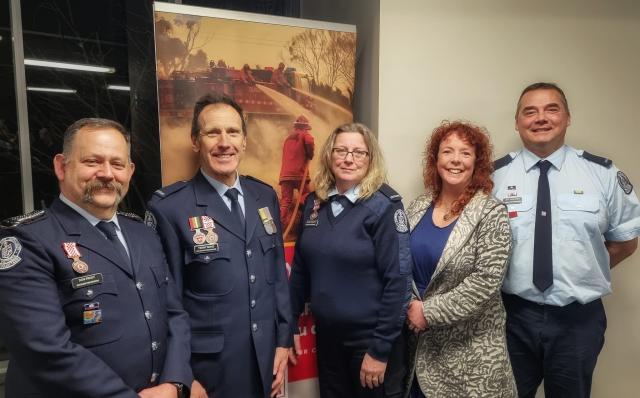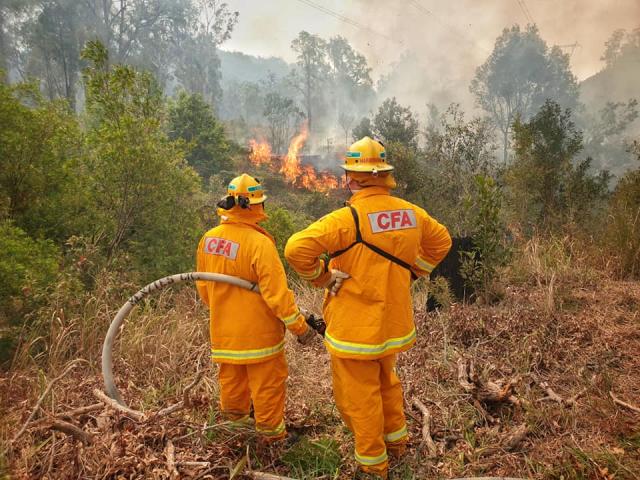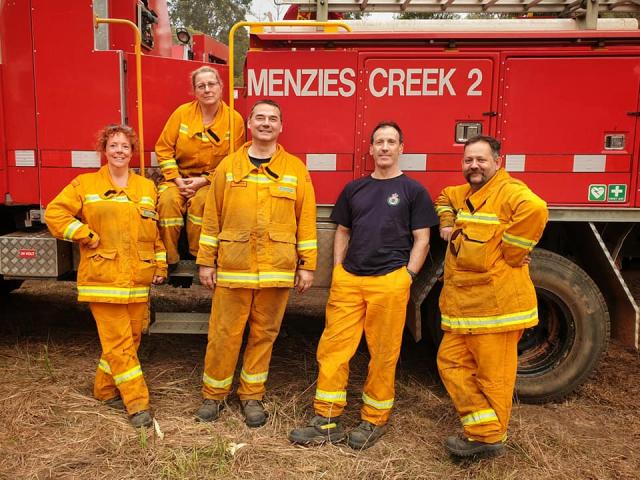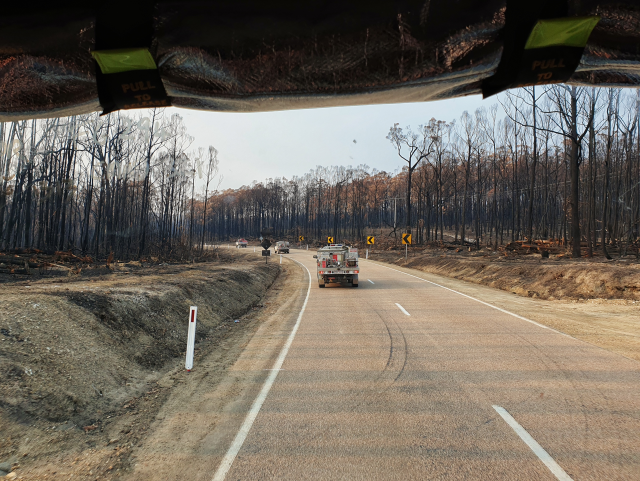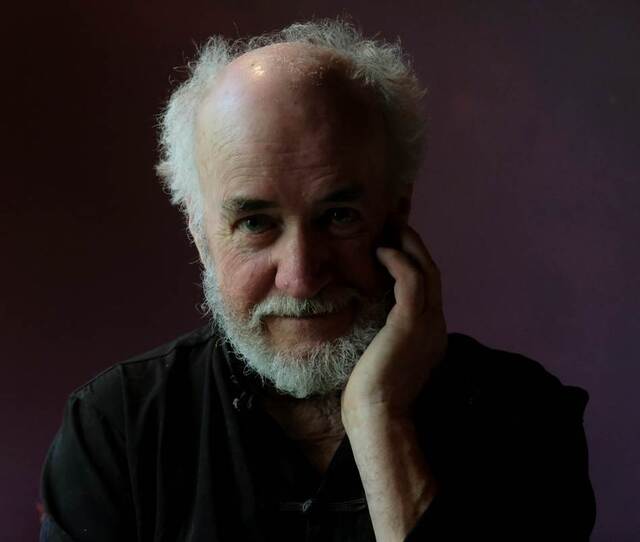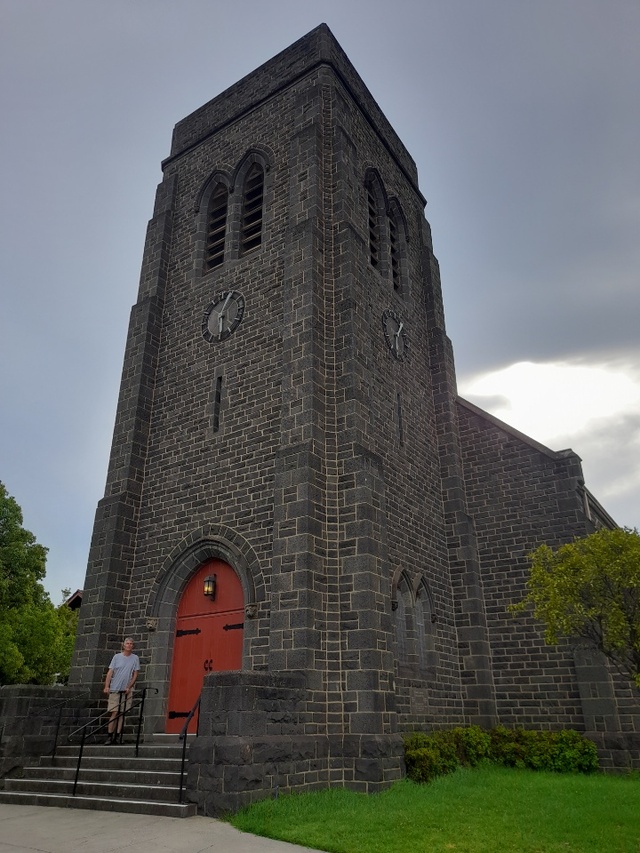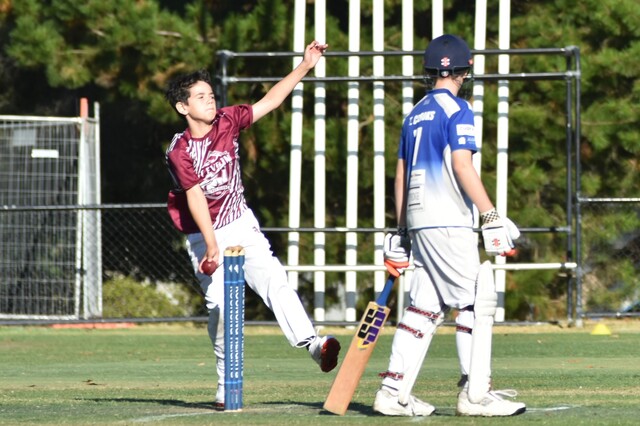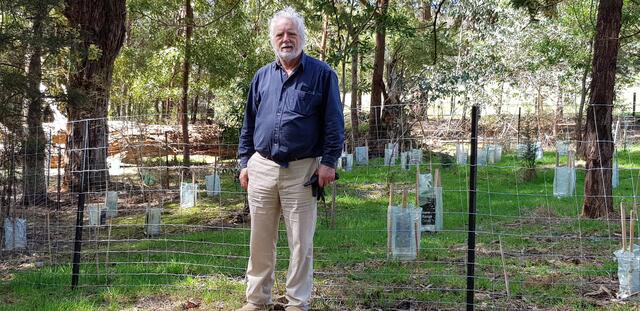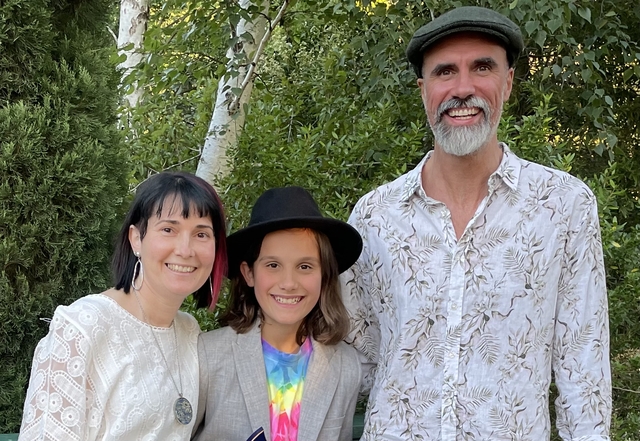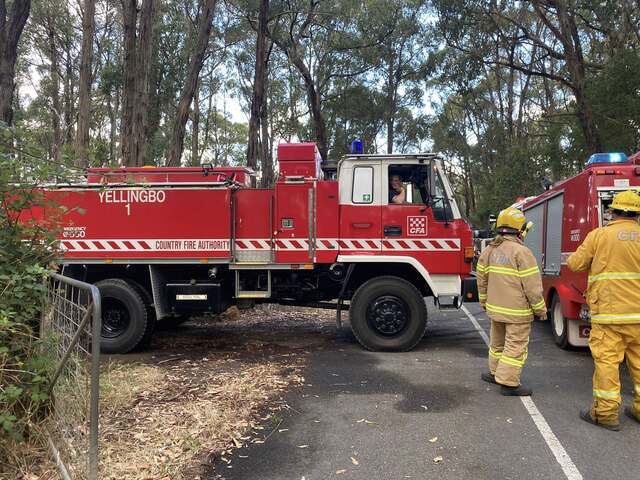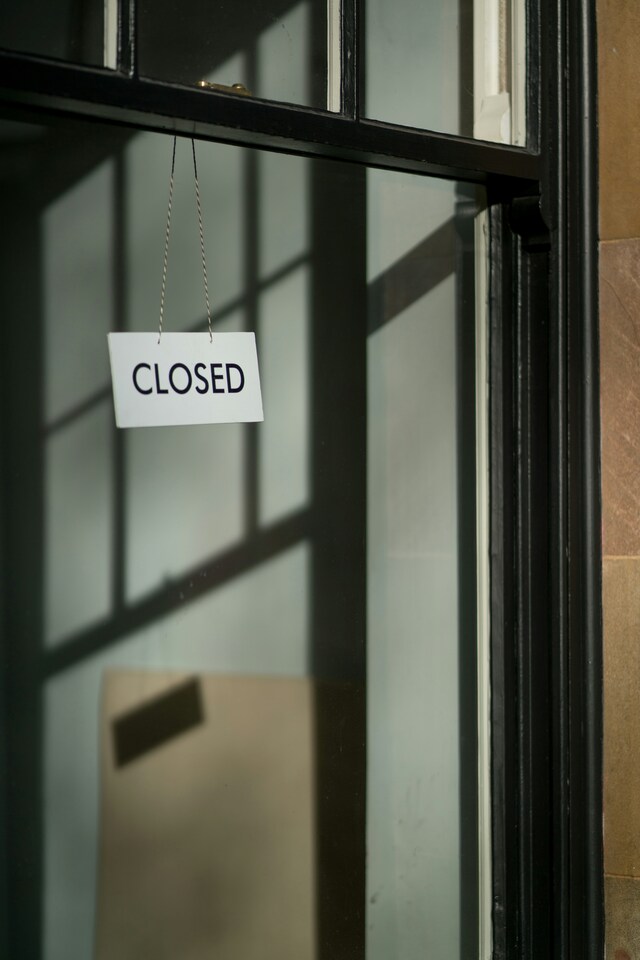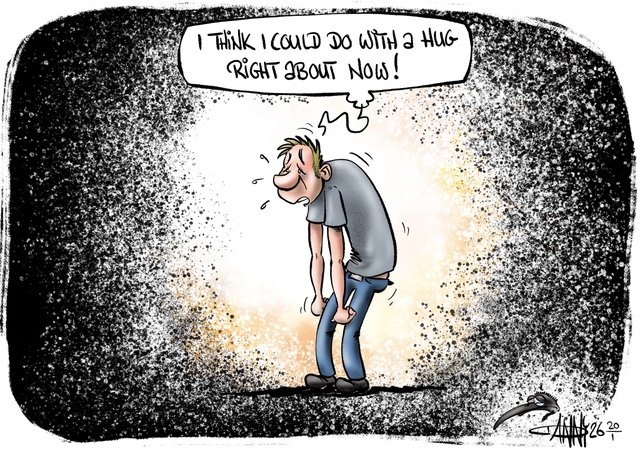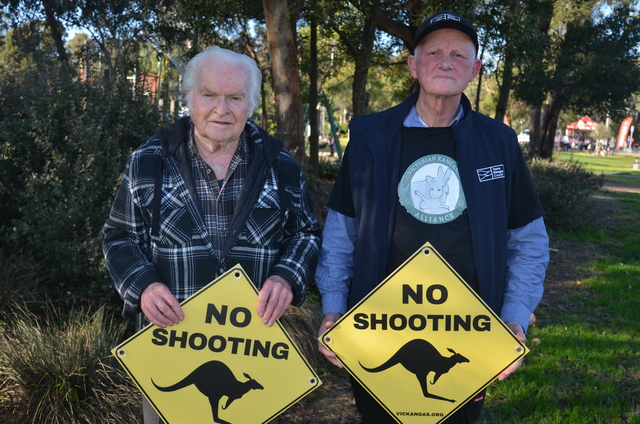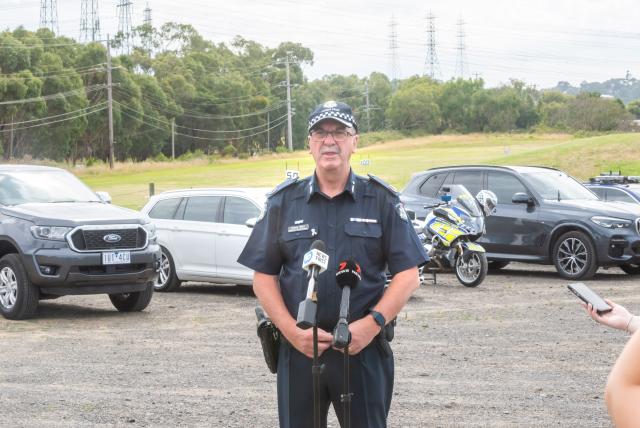Dandenong Ranges firefighters have been awarded national service medals for their work during the 2019/2020 bushfires that devastated the east coast of the country.
Lyndy Jewell, former Sassafras-Ferny Creek Fire Brigade member and Belgrave Fire Brigade second lieutenant Terry Boyd were acknowledged by CFA acting CEO Jason Heffernan and CFA board member Peter Shaw AFSM alongside district leaders in a ceremony at Mater Christi College on Wednesday 12 July.
The National Emergency Medal is part of the country’s Honours and Awards system and recognised significant or sustained service to others in a nationally significant Australian emergency.
Ms Jewell was deployed to Grafton in New South Wales for a week in November 2019, followed by another week’s deployment in East Gippsland from 26 December 2019 to 2 January 2020.
While working as a firefighter in Grafton, Ms Jewell worked on the communications team for people on the ground in East Gippsland.
“It’s stressful to have blanks in the communication and not know where the weather’s at,” Ms Grafton said.
“The good thing about the East Gippsland [deployment] was that they knew the fires were going to come out and they roughly knew when, so we had lots of time to prepare, which was not something you often get with firefighting.
“It was good to be able to have that little bit of time up our sleeves, which is an absolute such a gift when you know that the sh*t’s going to hit the fan and hit it hard.”
Ms Grafton said she was also deployed to Rochester; “chasing fires through paddocks and cutting through fences”.
“Definitely different to the firefighting that we were used to,” she said.
“We trained for it, but it’s not something that we do day to day, so that was a real eye opener.”
She said people were “definitely on edge” during the fires, and were trying to get information which was not always available.
“There was a lot of patience required with people, but also a lot of empathy because they’re doing what they can with the information they’ve got and often it’s not enough, so it’s just how it is,” she said.
“Watching everyone come home exhausted and filthy…it breaks your heart a bit to watch everybody doing that and seeing the community struggle.”
Ms Jewell said the aftermath of events like the Black Summer fires which burned more than 5.5 million hectares according to the Australian Institute Disaster Resilience, is often overlooked.
“It doesn’t matter whether you’re a firefighter or someone impacted by it, but suddenly your energy just drops out of your boots,” she said.
“It’s a long recovery process for communities, for individuals, for firefighters, for everybody.
“Energetically and emotionally impacted everybody. [Fires] often impact everyone more than you can prepare for.”
Mr Boyd was also deployed to Grafton in November 2019, and said crews knew in the second half of 2019 the fire season was going to be “pretty ugly” because of the way the fire seaon started.
“Eastern Australia, Queensland, seems to go first., and we know from history the rough timing of these things, what time of year we expect Queensland to start burning, and if it’s going to burn,” Mr Boyd said.
“They’re followed by New South Wales and it works its way down the east coast…when New South Wales has fires in July, I think everybody knew they were in trouble.”
Mr Boyd said the fire area in Grafton covered an “immense” area, including semi-rural environments and residential rural areas.
“There was a lot of asset protection and lots of cleaning up work and also trying to stop things, getting into unburned fuel and then getting rid of unburned fuel,” he said.
No sooner had crews returned home, Mr Boyd said, when they were sent to East Gippsland in their own state, with fires burning in Mallacoota.
“People with their their holidays being upset and the people who lived in the town being upset and spending nights and days on the beach.
“It gives you a wake up…we all know the Dandenong Ranges likes to burn from time to time.
“It’s living in Australia, isn’t it? Sometimes your territory burns. You have to be prepared.”
The 2019/2020 bushfires were not Mr Boyd’s first major bushfire event, with the volunteer firefighter being apart of the CFA for 20 years.
He was awarded his first National Service Medal for his work during the 2009 Black Saturday fires.
“The learning is always going on. We learn from every fire we go to and every deployment we go to,” he said.
“We learn from the people who are coming in from interstate to help. We learn from the people whose states we’re visiting. We learn from the other crews. We learn from the brigade next door to us.”
Both Mr Boyd and Ms Jewell said they do not do what they do for awards, but said they were honoured to be acknowledged for their work.
“I was quite chuffed to get it, but you never feel like you’ve done enough. We just did what needed to be done,” Ms Jewell said.
“We certainly didn’t do it as much as a lot of other people did, so you feel very humbled by it.”
Mr Boyd said it is “nice” to be recognised.
“The number of people that are involved and just the sheer effort that goes in; you look around the way people are working and there’s a lot of people who did a lot harder stuff than I was doing this time around,” he said.
“We’re all a little humbled sometimes because we tend to think ‘well, this is what we do, why are we not going to turn out?’ and to get a medal or a clasp on your medal…it’s always good.
“The ceremony was wonderful, we had the chief and member of the board… the district manager was there. They spoke kindly, and their congratulations were warmly received by all.”
CFA board member Peter Shaw AFSM presented the medals and said they were an important recognition of the valiant efforts of CFA members.
“The National Emergency Medal is a formal recognition that Australia appreciates the efforts and contributions of CFA members during the 2019-2020 bushfire crisis,” Shaw AFSM said.
“It is a great honour to receive this medal and I hope it goes a small way to thanking our members for their service.”
CFA Chief Officer Jason Heffernan said the 2019/2020 fires “devastated” East Gippsland and the North East of Victoria.
“But from that crisis arose the most remarkable human spirit of generosity and ‘lending a hand,’” Mr Heffernan said.
“Our medal recipients have exemplified that spirit, and I am incredibly proud of each and every one of them.
“Whether they joined a firefighting strike team, worked in an Incident Control Centre or provided other assistance to affected communities – every contribution was valuable made a real difference.”
Mr Boyd said he can not see “any way forward” with fire prevention unless there are people stepping up and putting their hand up to serve.
“That goes from the juniors from 11 to 12 years old and learning about firefighting and about fire and then coming into seniors at 17 and actually getting their qualifications and getting onto the fire ground,” he said.
“There wouldn’t be any people receiving medals and there’d be a lot more people without houses and without livestock and possibly without their own lives if we don’t have more people stepping up to the plate.”
Three other CFA firefighters from the Dandenong Ranges group were also awarded with national service medals.

